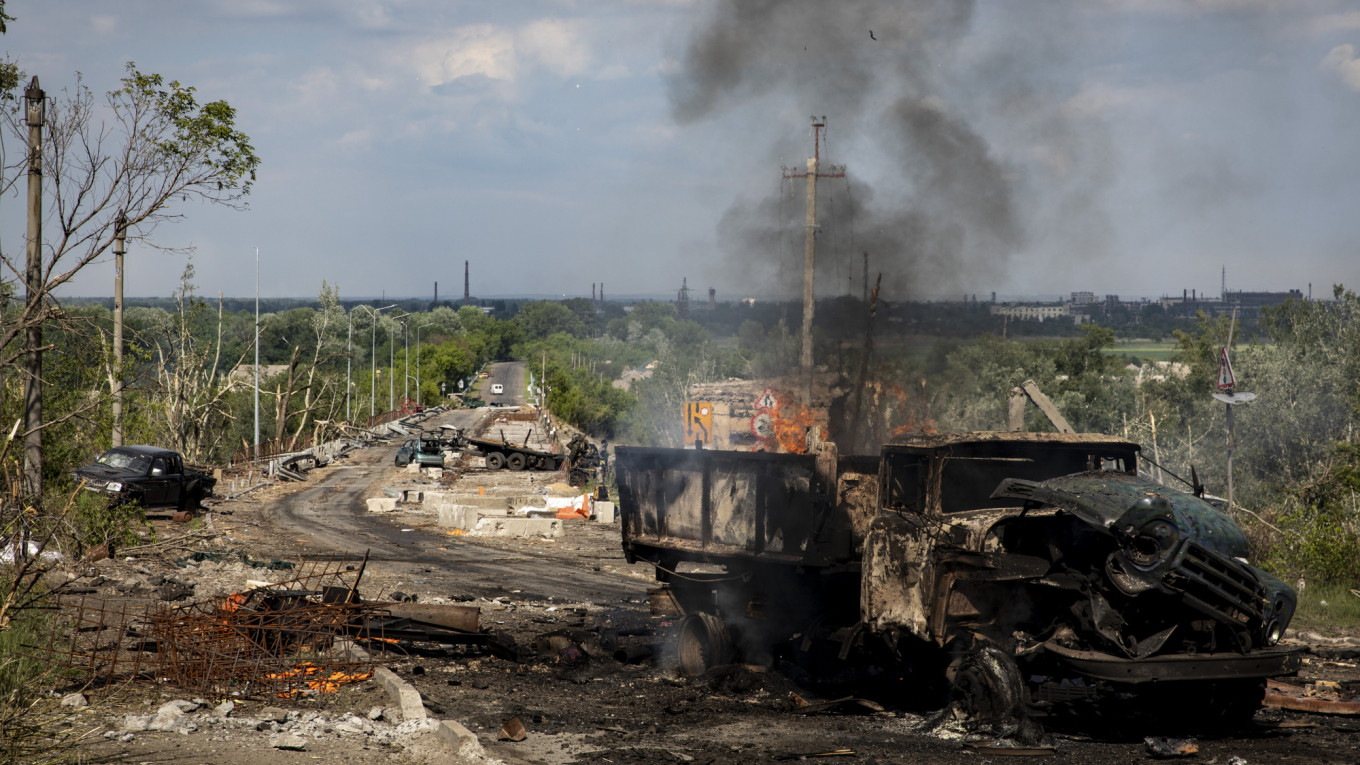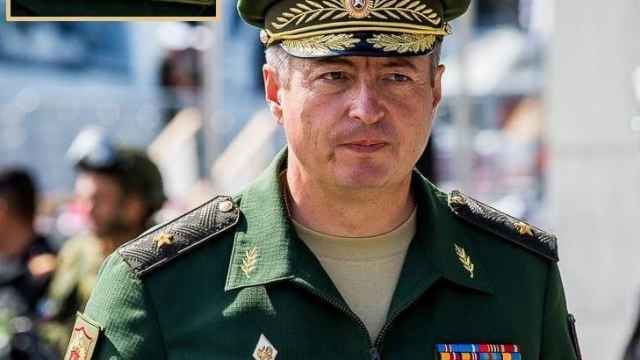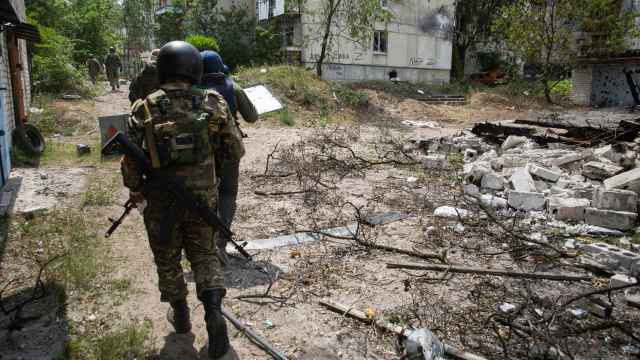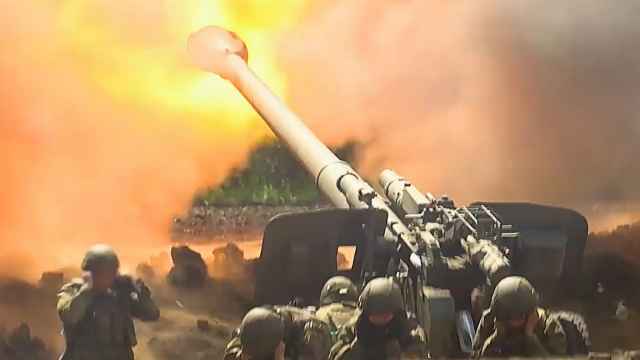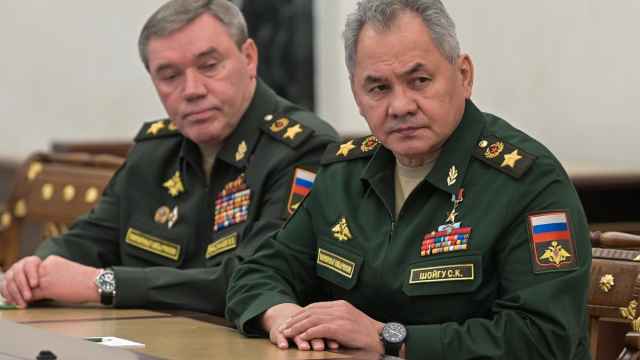"Massive" Russian bombardment of Ukraine's battleground eastern Lugansk region and key city Severodonetsk has been "hell" for soldiers there, Kyiv said, while insisting that defenders would hold "as long as necessary."
Moscow's troops have been pummeling eastern Ukraine for weeks and are slowly advancing, despite fierce resistance from the outgunned Ukrainian military.
With President Vladimir Putin's forces tightening their grip on the strategically important city of Severodonetsk in the Donbas, its twin city of Lysychansk is now coming under heavier bombardment.
"The Russian army is massively shelling Lysychansk," Sergiy Gaiday, governor of the Lugansk region, which includes both cities, wrote on Telegram.
"They are just destroying everything there... They destroyed buildings and unfortunately there are casualties."
He later wrote that "it's just hell out there" after four months of shelling in Severodonetsk, across the Donets river — while adding that "our boys are holding their positions and will continue to hold on as long as necessary."
Russian forces have been occupying villages in the area, and taking control of the two cities would give Moscow control of the whole of Lugansk, allowing them to press further into the Donbas.
After being pushed back from Kyiv and other parts of Ukraine following their February invasion, Moscow is seeking to seize a vast eastern swathe of the country.
In a briefing Wednesday, the Russian Defense Ministry claimed responsibility for a missile strike it said killed a number of Ukrainian troops in southern Mykolaiv.
In central Ukrainian city Zaporizhzhia, women were training to use Kalashnikov assault rifles in urban combat as Russian forces edged nearer.
"Of course, when you can do something, it's not so scary to take a machine gun in your hands," said Ulyana Kiyashko, 29, after moving through an improvised combat zone in a basement.
'Simply destroys'
In his daily address Tuesday, Ukrainian President Volodymyr Zelensky also accused the Russian army of "brutal and cynical" shelling in the eastern Kharkiv region.
"The Russian army is deaf to any rationality. It simply destroys, simply kills," he said.
Fifteen people were killed by Russian shelling in Kharkiv Tuesday, its governor said.
Aid group Doctors Without Borders (MSF) said it had gathered accounts of an "outrageous lack of care to distinguish and protect civilians."
Among hundreds of patients evacuated by train, more than 40% were elderly people or children.
Most said Russian or Russian-backed forces were to blame for a spectrum of gruesome injuries.
"Although we cannot specifically point to an intention to target civilians, the decision to use heavy weaponry en masse on densely populated areas means that civilians are inescapably, and are therefore knowingly, being killed and wounded," said MSF emergency coordinator Christopher Stokes.
On the Russian side, authorities in the Ukraine-bordering Rostov region said Wednesday that a fire at an oil refinery might have been caused by a drone strike, saying parts of unmanned aircraft had been found at the scene.
Away from the battlefield, Moscow was locked in an increasingly bitter dispute with EU member Lithuania over the country's restrictions on rail traffic to the Russian outpost of Kaliningrad.
The territory is around 1,000 miles (1,600 kilometers) from Moscow, bordering Lithuania and Poland.
By blocking goods arriving from Russia, Lithuania says it is simply adhering to European Union-wide sanctions on Moscow.
But Moscow accused Brussels of an "escalation" and summoned the EU's ambassador to Russia.
The United States made clear its commitment to Lithuania as an ally in NATO, which considers an attack against one member an attack on all.
"We stand by our NATO allies and we stand by Lithuania," State Department spokesman Ned Price told reporters in Washington.
With U.S.-Russia tensions soaring, the State Department on Tuesday confirmed a second American, 52-year-old Stephen Zabielski, was killed fighting for Ukraine.
Two other Americans were captured last week in eastern Ukraine.
A White House spokesman, John Kirby, voiced alarm at Russian statements that it would not apply the Geneva Conventions on the humane treatment of prisoners to the pair.
"It's appalling that a public official in Russia would even suggest the death penalty for two American citizens that were in Ukraine," Kirby told reporters.
In a swipe at Washington, Moscow authorities announced that the official address of the U.S. embassy there had been changed to "1 Donetsk People's Republic Square" after the name of the breakaway Ukrainian region won a public poll.
Meanwhile in Brussels, ministers unanimously agreed Tuesday to grant Ukraine and neighbor Moldova candidate status for membership in the European Union.
Also on the diplomatic front, Moscow complained that its delegates to an Organization for Security and Cooperation in Europe (OSCE) assembly in Britain next month had been refused U.K. visas.
'Fight for weapons'
Western nations have been pumping billions of dollars of weapons into Ukraine, where Defence Minister Oleksiy Reznikov tweeted that powerful German-made Panzerhaubitze 2000 howitzer artillery had reached his country's forces.
But Zelensky reiterated Ukrainian calls for faster deliveries of weapons.
"The lives of thousands of people depend directly on the speed of our partners," he said in his daily address.
Ukraine meanwhile said it struck a Black Sea oil drilling platform off the Crimea peninsula because Russia was using it as a military installation.
Ukrainian officials say the rig was being used for military purposes.
A Message from The Moscow Times:
Dear readers,
We are facing unprecedented challenges. Russia's Prosecutor General's Office has designated The Moscow Times as an "undesirable" organization, criminalizing our work and putting our staff at risk of prosecution. This follows our earlier unjust labeling as a "foreign agent."
These actions are direct attempts to silence independent journalism in Russia. The authorities claim our work "discredits the decisions of the Russian leadership." We see things differently: we strive to provide accurate, unbiased reporting on Russia.
We, the journalists of The Moscow Times, refuse to be silenced. But to continue our work, we need your help.
Your support, no matter how small, makes a world of difference. If you can, please support us monthly starting from just $2. It's quick to set up, and every contribution makes a significant impact.
By supporting The Moscow Times, you're defending open, independent journalism in the face of repression. Thank you for standing with us.
Remind me later.


